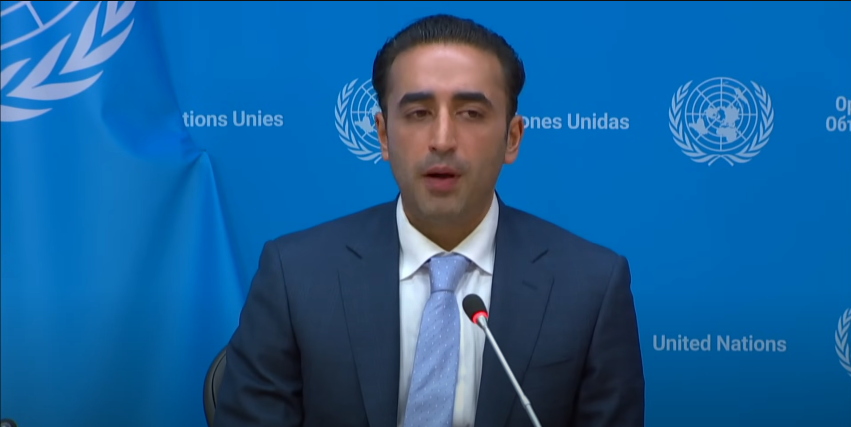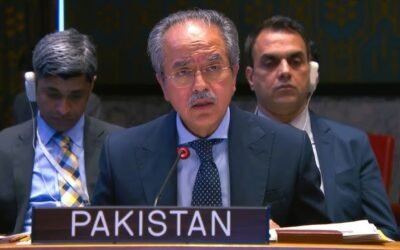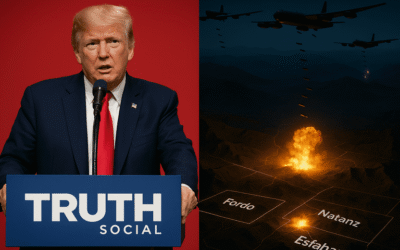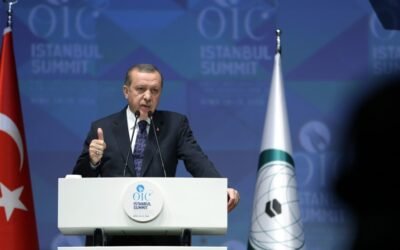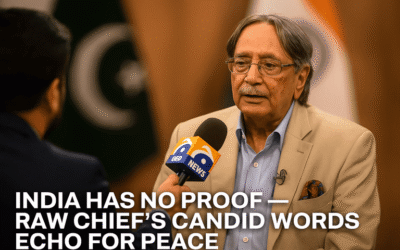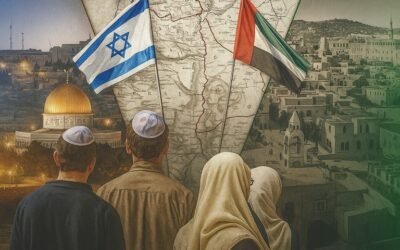Pakistan’s Urgent Appeal to the World
In a compelling press briefing at the United Nations headquarters, Pakistan’s Foreign Minister Bilawal Bhutto Zardari addressed the international media, shedding light on recent escalations between India and Pakistan. Representing a multi-party delegation, Zardari warned that the May 7th strikes launched by India inside Pakistani territory mark a dangerous turning point for regional and global security.
“India violated international law and the UN Charter,” Zardari declared, citing air and missile strikes that targeted not just military sites, but civilian infrastructure, religious sites, water dams, and energy grids. He described the attacks as unprovoked and unjustified, emphasizing that innocent women and children had lost their lives.
Pakistan’s Response: Restraint, Not Retaliation
Following the strikes, Pakistan’s Prime Minister Shehbaz Sharif offered full cooperation with any international investigation into the Kashmir terror attack that India cited as its rationale. “We knew our hands were clean,” Zardari said. “But India rejected diplomacy and chose war.”
Zardari revealed that Pakistan’s military had the capability to lock onto 20 Indian aircraft but only downed six—those confirmed to have dropped payloads. He described this decision as an act of restraint. It was through mediation—especially by then U.S. President Donald Trump and Secretary of State Rubio—that a ceasefire was eventually reached.
The Bigger Threat: Lowering the Nuclear Threshold
Zardari’s tone shifted from reactive to cautionary as he warned the global community: “The world is now less safe than it was before this ceasefire.” He explained how the threshold for military conflict between nuclear-armed states like India and Pakistan had dangerously dropped. The next escalation, he feared, might come too fast for diplomacy to catch up.
“We are not the aggressors. We acted only in self-defense,” he reaffirmed. “It’s time for diplomacy—not destruction.”
Time for Comprehensive Dialogue
Bilawal Bhutto Zardari reiterated Pakistan’s longstanding desire for a comprehensive dialogue with India—a process that must include not just terrorism, but the Kashmir conflict and emerging issues like water resource weaponization. He reminded the audience that Pakistan is one of the biggest victims of terrorism globally, with thousands of lives lost in recent decades.
“I lost my own mother—Benazir Bhutto—to terrorism,” he said, adding that Pakistan has made significant progress through the FATF process to curb terror financing. “We’ve earned our scars fighting this battle. We don’t need lectures from anyone.”
Kashmir and the Israeli Parallel
Zardari drew strong parallels between India’s actions in Kashmir post-2019 and Israeli settler policies in the West Bank. He described India’s efforts to change Kashmir’s demography as “inspired by the worst examples of illegal occupation.”
He acknowledged the humanitarian catastrophe in Gaza and Palestine as more severe, but stressed that the playbook being used by New Delhi shares disturbing similarities. “Mr. Modi started as the Butcher of Gujarat, became the Butcher of Kashmir, and now risks becoming the Butcher of the Indus Valley Civilization,” Zardari warned, referencing threats to the Indus Waters Treaty.
Weaponizing Water is an Act of War
“The mere threat to cut off Pakistan’s water supply is a declaration of war,” Zardari said forcefully. He called on the international community to hold India accountable for undermining the Indus Waters Treaty, warning that such actions would lead to catastrophic consequences, especially in a region already grappling with climate change and drought.
Disinformation, Drones, and Double Standards
The press conference also touched on reports of Israeli drones being used in India’s military action. Zardari confirmed this, saying it exemplified how India was importing both hardware and political strategies from Israel.
He accused India of using the label “terrorist” to demonize its Muslim population, Kashmiris, and even Pakistani civilians. “It’s not about security—it’s about political control. And it’s dangerous,” he emphasized.
Global Diplomacy and the Path Forward
Zardari explained that Pakistan’s UN delegation had met with several influential bodies, including the UN Secretary-General, Security Council members, and the Organization of Islamic Cooperation. He noted growing global acknowledgment of Pakistan’s transparency and diplomatic conduct.
Looking ahead to meetings in Washington D.C., he reiterated that Pakistan seeks trade, not tension. “Just like the U.S. trades with China, we too can maintain balanced ties with both China and the West.”
Ending on a Note of Caution
In closing, Zardari reminded the world that terrorism can’t be defeated through isolation, propaganda, or war. He proposed mechanisms for intelligence-sharing between Pakistan’s ISI and India’s RAW to jointly fight terrorism. “It’s time for honesty, not hysteria,” he said. “We are ready to talk—on terrorism, on Kashmir, on water. But we need a partner, not a bully.”

